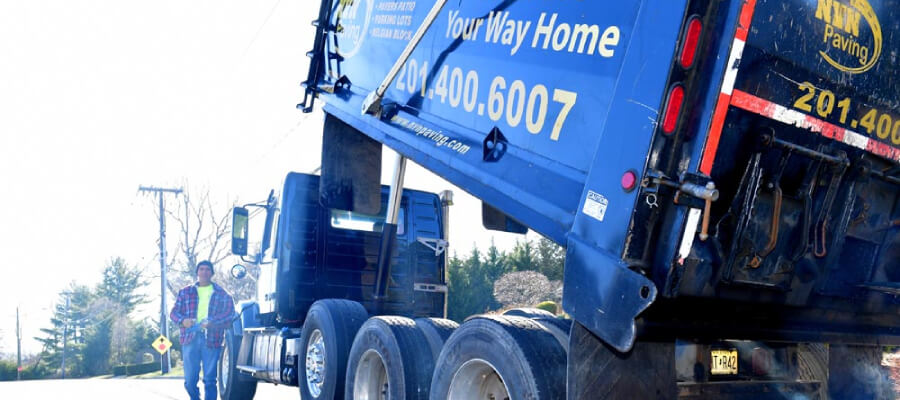What You Need to Know About Paving Contractors
Maintaining a beautiful home and keeping pavements in perfect shape can be a challenging task for many homeowners. Without expertise in paving and concrete installation, it’s necessary to enlist the help of a professional paving contractor to ensure a flawless and durable outcome.
In my quest to find the perfect paving contractor in NJ, I delved into the details of the paving process and the factors to consider when choosing a contractor. This guide will provide an overview of the paving process and tips for finding the right paving contractor in NJ.
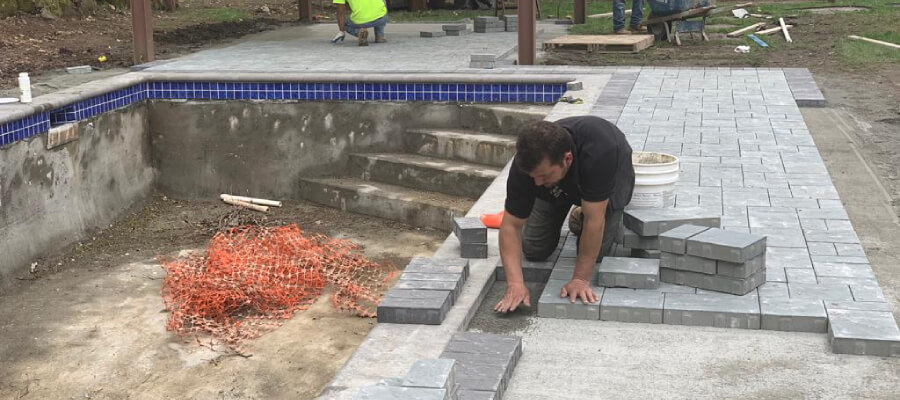
A Brief Overview of the Paving Process
- Hire a reliable contractor.
- Remove the existing surface.
- Level and compact the ground.
- Lay crushed rocks on top of the base soil.
- Determine the size and thickness of the asphalt.
- Compact the asphalt using a heavy roller.

Identifying a Reliable Contractor
A reliable contractor is detail-oriented and knowledgeable about their job. They can help you determine the best solution for your driveway or patio. To find the right contractor, ask other homeowners with paved driveways for recommendations or walk around your neighborhood to observe different driveways and determine which style you prefer.
You might be in luck if there’s a paving company located near your home. Alternatively, you can post your project online to attract contractors, although this method might take more time.
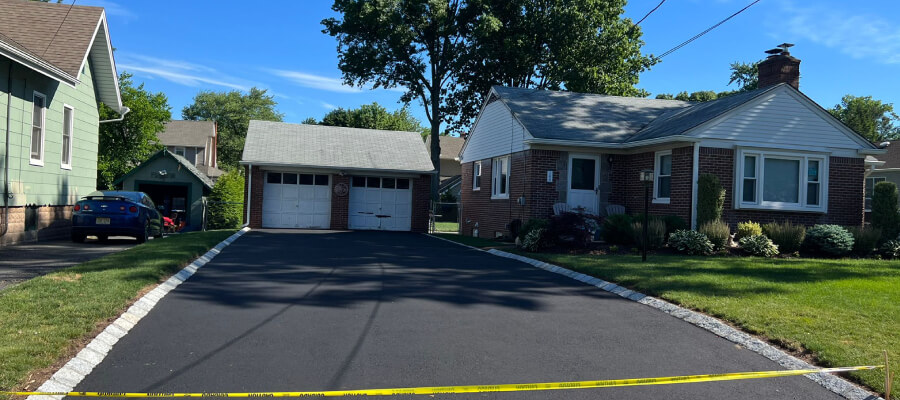
Asphalt Driveway Paving
Asphalt is a popular choice among contractors due to its affordability and straightforward installation process. With minimal maintenance, asphalt can last for an extended period, although its lifespan depends on proper installation.
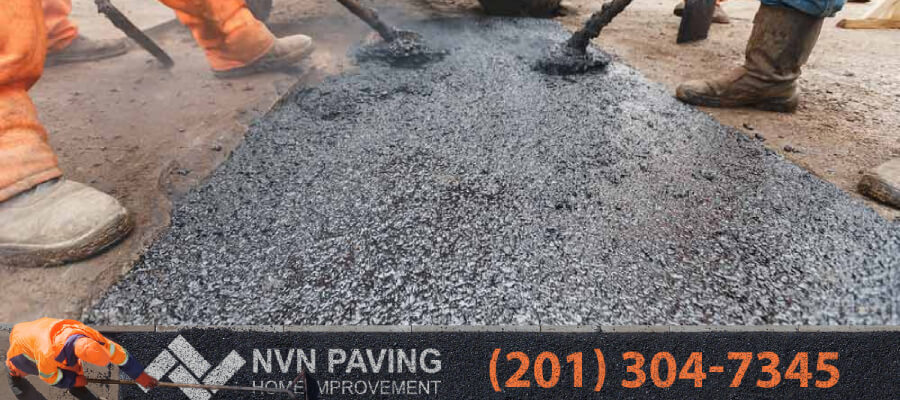
Understanding the Asphalt Paving Process
Asphalt is a black bituminous substance used to pave driveways, streets, and pathways. It serves as a binder for stones and gravel, creating a strong and durable substance. Asphalt consists of an aggregate of sand, crushed rocks, and a black bituminous substance, which is a petroleum product. These materials are heated together to create a steaming hot mixture used for paving.
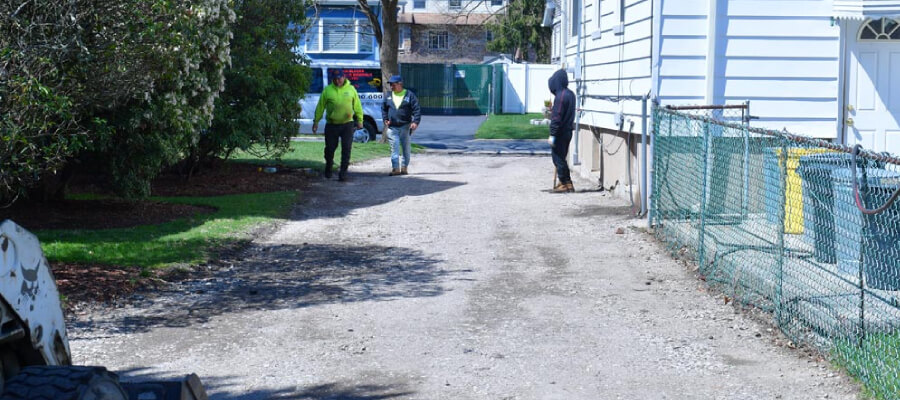
Preparing the Base
A firm foundation is crucial for the longevity of your driveway. During the asphalt installation process, the base must be free from vegetation, plants, and soil debris. The previously installed surface must also be removed. The base preparation is the most critical step, as the top layer will be laid on top of it. If not correctly established, the top layer may shift, leading to cracking and increased costs.
The recommended thickness of the base should be 4-6 feet, consisting of crushed stones and a one-inch layer of sand. The width of the base will depend on the traffic the driveway is expected to handle. Additionally, the base should be sloped to ensure proper drainage.
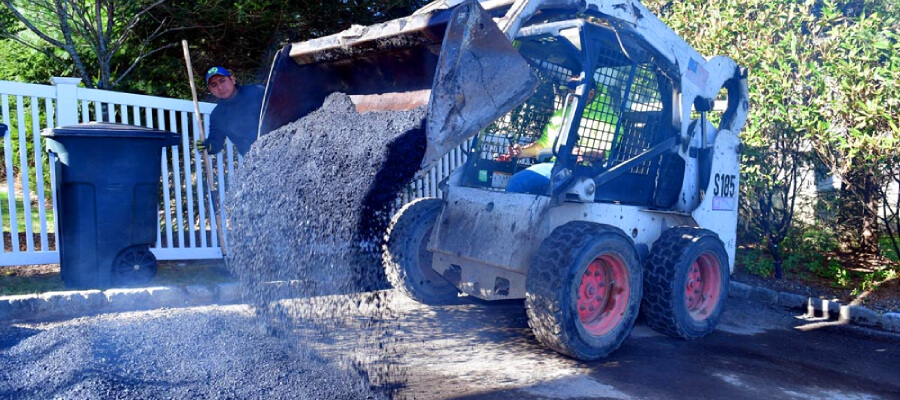
How to Set the Pavement
The pavement should be both hard and durable to withstand traffic while remaining smooth and visually appealing. To achieve this balance, paving contractors use a combination of small rocks and sand for smoothness and crushed stones and gravel for durability. The bottom layer, comprised of crushed rocks and gravel, is thicker than the top layer of small rocks.
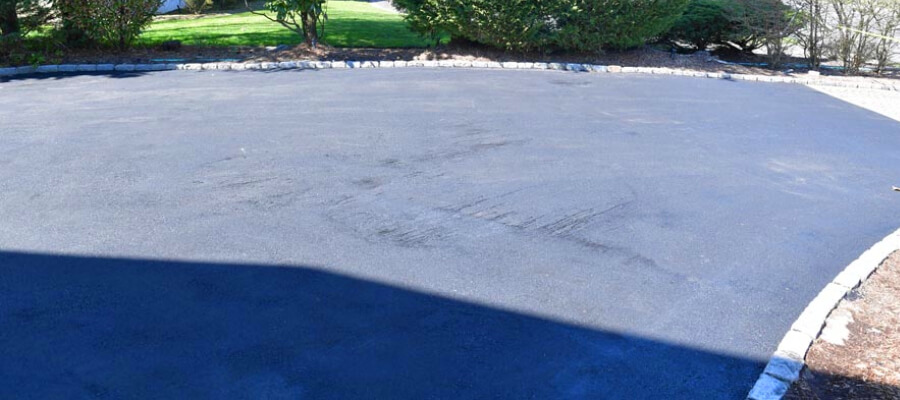
To create a smooth surface, a lighter mix is spread and topped off with the asphalt compound, which binds everything together.
In conclusion, finding the right paving contractor in NJ involves researching and considering various factors. By understanding the paving process and selecting a reliable contractor, you can ensure a durable and aesthetically pleasing result that will enhance your property’s curb appeal for years to come.
